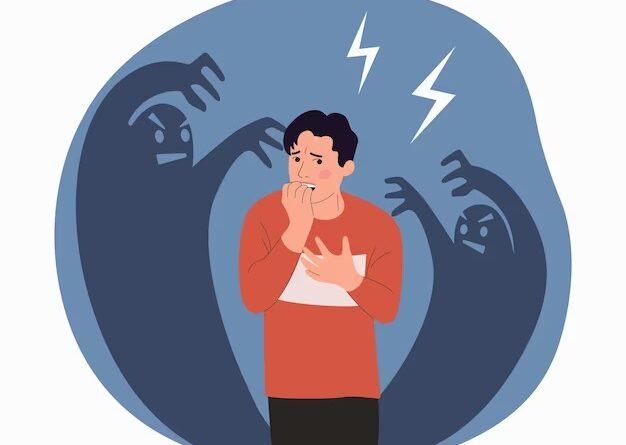Illogical Fears in Children
Introduction
The word “illogical” could irritate certain individuals. There may be a good explanation for the concern, as it seems to be pretty real. Even a valid concern, though, may become ridiculous if it takes over your life.
Most people have at least one irrational fear, such as a persistent dread of spiders or dentists. Most people don’t experience anxiety that is significantly elevated. However, anxieties are referred to as phobias when they worsen to the point of excruciating tension and interfere with daily activities.
A Phobia is an extreme dread of something that is, in reality, very unlikely to be dangerous. Closed spaces, heights, traveling on motorways, flying insects, snakes, and needles are among the common phobias and anxieties. But you may fear practically anything. Although phobias often arise in infancy, they can also manifest in maturity.
If you suffer from a phobia, you probably realize that your anxiety is unjustified, yet you are powerless over your emotions. You may feel unpleasant by just thinking about the thing or circumstance that scares you. And when your fear is really confronted, the horror takes control and becomes automatic. It’s so uncomfortable that you might go to considerable lengths to concern yourself, avoid the experience, or even alter your way of life.
What distinguishes it from fear in general?
Fear is a natural feeling in dangerous situations and may even be beneficial. The body’s defense mechanism, known as the “fight-or-flight” response, is triggered by fear. We are able to respond quickly and defend ourselves when our body and minds are awake and prepared. However, when it comes to phobias, the threat is either completely unreal or grossly exaggerated. It is reasonable to be terrified of a snarling Doberman, for instance, but unreasonable to feel the same way about a cute, well-behaved poodle, as you might if you are scared of dogs.
Many of the typical concerns that infants have typically start to surface at particular ages. For instance, a lot of young children have trouble falling asleep at night and may require a nightlight. It does not imply that they are phobic. As children get older, this fear is often conquered.
Babies fear large objects, loud noises, strangers, and being away from their parents until they are two years old. As children become older, popular concerns include being alone when sleeping, ghosts, monsters, and the dark. Early adolescence is when more realistic concerns start to surface, such as disease, injury, poor academic performance, mortality, and natural disasters.
You don’t need to worry too much as long as your child’s anxiety isn’t interfering with their everyday activities or causing them a lot of distress.
Types of baseless fears:
Individuals have a wide range of irrational worries that, despite their absurdity, are quite harmful. The following categories typically include phobias:
- Aversion to all animals, including cats, dogs, rats, snakes, and mice.
- Fears associated with the natural world include those related to heights, firestorms, water, illness, aging, and other natural occurrences.
- The Blood-Injection-Injury Type includes allergies to blood, needles, and other potentially contaminated items.
- Situational phobias include fears of, among other things, being in small spaces, the dark, going to the dentist, or other circumstances.
- Hard-to-classify phobias, such those involving the number thirteen, clowns or mimes, loud noises, and so on, fall under the category of Other Type phobias.
Common phobias include coulrophobia (the fear of clowns), claustrophobia (the fear of confined spaces), hydrophobia (the fear of water), agoraphobia (the fear of heights), and other similar phobias.
The reasons
Previous traumas: It’s possible that certain encounters will affect your emotions forever. For instance, if you experienced a lot of turbulence on a flight when you were a tiny child, you may grow to fear flying. Alternatively, if a dog bit you years ago, you can grow afraid of them.
Early childhood experiences and responses Your fear may have developed as a result of your early experiences. For instance, your guardians or parents can be fearful or concerned about you. This could have an impact on how you handle anxiety in the future. It is possible for you to inherit the phobias that your elder siblings or parents did. You might start to feel the same way if others react negatively to what they dread.
Genetic factors: Research has indicated that certain people are more likely than others to acquire phobias. A youngster is more likely to develop phobias if a close family suffers from an anxiety condition.
Some people stay away from things or circumstances that make them anxious. Over time, though, this can make you worry more. But it might be really challenging to be in an environment where you feel fearful, and you could require professional assistance to make this happen.
Feelings: Panic episodes are the most prevalent and crippling symptom of a phobia. Symptoms of a panic attack include:
- Chest tightness or soreness,
- Lightheadedness or lack of breath,
- Profuse perspiration,
- Fast heart rate,
- Breathing difficulties,
- Speaking quickly or nonexistently, and parched tongue;
- Nausea;
- Feeling queasy in the stomach;
- High blood pressure reading;
- A sense of impending disaster
Supervisory
Treatment options for irrational fears and phobias include therapy, medication, and self-help methods. The most well-liked programs for treating irrational fear are listed below:
With exposure therapy, your doctor gradually introduces the object your kid fears to you in an effort to change how your child reacts to it. These are effective for certain kinds of phobias. Your child therapist could recommend practicing, role-playing, and increased exposure to social situations if you struggle with social anxiety. They will push you to stop being so critical of yourself and provide you techniques for lowering your anxiety. You practice comfort on all levels. You’re ready for some serious exposure when the fear subsides. Right now, relaxation methods might also be helpful.
In addition to exposure, cognitive behavioral therapy gives you new coping strategies for your concerns. Rather than letting your fear rule you, CBT may help you learn how to manage your thoughts and feelings. Techniques for support, relaxation, biofeedback, and consistent deep breathing. Throughout your therapy, these can assist in reducing your anxiety levels. Many people have discovered that attending support groups and phobia clinics aids in their recovery from their fears.
Depression-fighting drugs: When it comes to treating social anxiety, the selective serotonin reuptake inhibitor (SSRI) class of medications is quite helpful.
Beta-blockers: After using these medications, many singers, lecturers, and actors report that their symptoms of stage fright go down. At greater dosages, they are frequently used to treat high blood pressure, but they can also block the effects of lesser levels of adrenaline, which stop the body from responding to stress. They do not lead to excessive drowsiness; instead, they momentarily decrease the bodily symptoms of anxiety.
Avoid attempting to run away from risky situations –Practice staying as close to terrifying situations as you can, instead of trying to get away from them completely. Work on this with the support of friends, family, and a child therapist. Work with your therapist to implement the methods you learn in treatment to create a strategy for when your symptoms go worse. Work with your therapist to create a plan in case your symptoms worsen while implementing the techniques you learn in treatment.
Conclusion
People typically try to avoid feeling afraid. But if you keep avoiding facing your own fears, the monster will have you as captive. To do this, you should typically try to stay away from any stressors that can irritate you and find continual diversions. Unfortunately, you are also missing out on certain challenges that might lead to success and pleasure. Moreover, fear is not always something you can escape.
No matter how hard you try to stop it, it will still come. Moreover, it frequently happens when you need to maintain emotional balance the most. The good news is that if you confront fear head-on and give it permission to exist rather than suppressing it in a secret corner of your mind, it starts to lose power over you and will no longer dictate your decisions and assessments.
If your kid seems to be struggling to form healthy relationships or shows any indications of an anxiety problem, get in touch with a child counselor for a referral or examination. Early identification and therapy are beneficial for children suffering from this ailment. For those searching for the “Best Psychologist in India,” TalktoAngel is an online resource that connects you with the most skilled and qualified child therapists.



